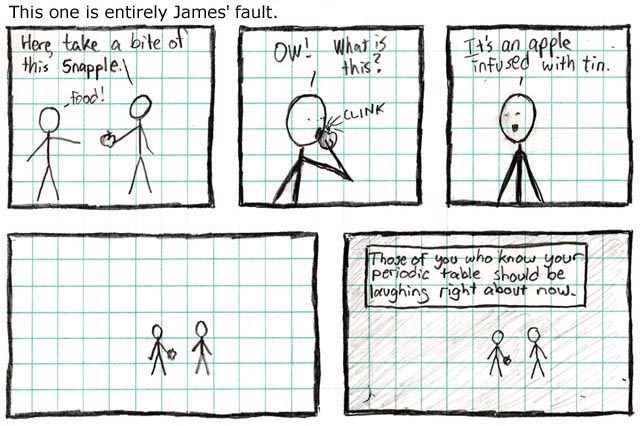Food microbiology is incredibly boring. Foodborne pathogens seem to appear everywhere, in every food we eat. Staphylococcus aureus is also apparently a food pathogen. It should be a law for every last food handler to wear some very clean gloves. I've changed my mind. Food microbiology is not incredibly boring. It's only slightly boring, but it is also very bad for the appetite.
That doesn't really change the fact that trying to memorise a list of pathogens and the diseases they cause is as tedious and un-enjoyable as science could possibly get. This is a job for stiff muggers who don't have anything better to do. There is really nothing complicated here. No complex processes to understand. Makes it an uninteresting task.
Plus, it's difficult to know the actual pronunciation of the names. You can never really trust what you hear in a Singaporean lecture hall. This is sort of a problem, because I'm quite dependent on verbal quizzing.
Head hurts slightly.
The kind of "detail" that the lecture notes go into just seem rather unnecessary. When they started giving me examples of metallic food packaging, I wanted to scream and hurl stuff at the monitor. Why do they feel the need to tell us that aluminium cans exist? Or tin cans. They can't possibly be thinking of asking this stuff in the common test.
Oh and here's something interesting. The original spelling of "aluminum" is as such. It was named by a British chemist in the early 1800s, who was attempting to use electrolysis to extract the metal from its oxide. It was later changed to "aluminium" to make it uniform with the other elements. However, as usual, the Americans had a problem with that. In 1892, a man named Charles Hall started advertising a new electrolytic method of extracting aluminium. Whether it was a genuine mistake, or an attempt at ease of pronunciation(there is one less syllable in "aluminum"), the adverts featured the older spelling.
Hall happened to be one of the more dominant players in the metal industry, so the public had "aluminum" imprinted onto their minds.
And that is why Americans spell it differently from everyone else today.

-Joe
